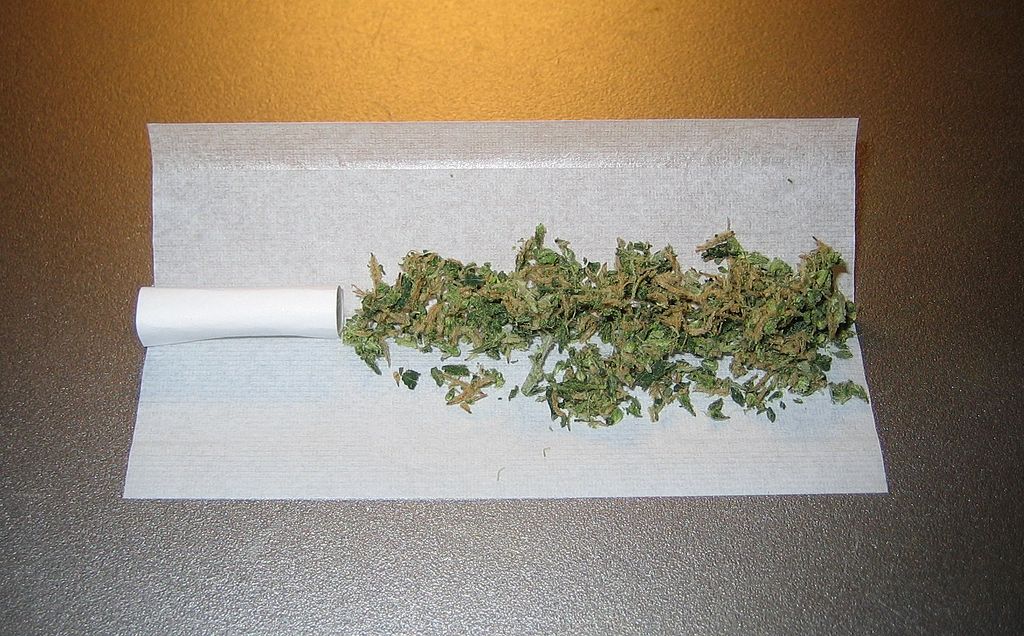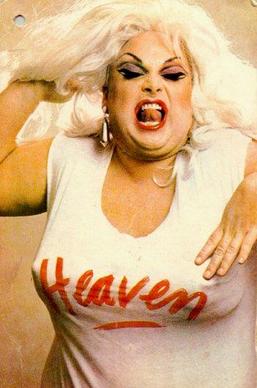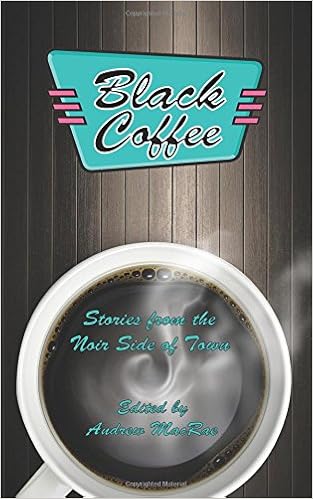by Eve Fisher
I grew up in Southern California in the 60's, which explains a lot. (Thank-fully, there was no Facebook, and no cell phones that took pictures, so I can deny
everything.) As I've said before, it was an interesting time and place to be a teenager. There's nothing like starting off in a place where there are people of every ethnicity and religion. (I still love the good juicy mix of people that you can only find in a multi-cultural city.) Where people still might not be officially out of the closet - although wearing great designer drag - but the euphemisms were very thin and nobody was fooling anyone. (I learned about Jim Nabors when I was ten, and it didn't bother me a bit.) Where cult-shops were on offer everywhere you looked (which is why I know a cult when I see one, even if it's called a church, a party, a membership, or a club). Where you were never sure if what was going on was reality or someone shooting a movie/tv show (now
that could get a little weird...).

And then there were drugs. Everywhere, oceans of them, both on and off-label, as it were. I remember when I went to junior high, and the girls' bathroom reeked of what I quickly found out was not just cigarettes (my parents smoked), but also marijuana. Reds and whites (downers and uppers) were widely available. And other things. And wide recreational use was helped by the fact that both my junior high and high school were outdoor campuses. Literally.
Only the actual classrooms and the auditorium were indoors. The lockers were under the equivalent of concrete carports; the cafeteria was a row of vending machines (they even had burritos, which we all somehow ate and survived...) under their own concrete carport, and there were metal tables (never enough) under their own sheds. The idea was that we students would dine and relax and run playfully on the wide and spreading lawns. And we did. Just not the way they [officially] planned.
Now, my personal experience in life is that almost all children and teenagers, given half a chance to run amok, will. And in Southern California, where the weather was good and the teachers were worn out... So freedom, space, opportunity... most of us took it.
There is a period, from say 12 to 25, where people will do as much drinking, drugging, etc. as they can. Whether or not they really feel like it. Those of you who have ever worked at a candy store or a pizza place and been told, "eat all you want" will know how after a while, you don't really feel like it anymore, but you keep doing it because it's free, man, and you're supposed to
want this stuff... Most people, after a few weeks/months of gorging will stop. They may never want the candy, etc. ever again. But during that time of gorging, you'd be really hard pressed to figure out who's an addict/alcoholic and who isn't. I know anyone who watched me from 14 to early 20s would have been sure I was headed to rehab. I drank, I smoked, I did some prescription drugs (my parents had bottles of both booze and Darvon everywhere), and later, when I left home, I did everything I could get my hands on. Just about everyone I knew did the same.
And then, it got old. I quit doing pretty much anything but pot, alcohol, and cigarettes when I turned 18. I quit smoking dope a couple of years later, when I figured out that it did nothing for my writing but make me think it was better than it was. And then there was the early morning (2:30 PM) after the last big New Years' party of my life, where I turned to my new husband and said, "There has got to be a better way to start a new year than this." And from then on, I was a social drinker. One glass of wine, two at the most, and I'm done, thanks.
So, if you want to figure out if your teenager is an addict or alcoholic, chances are you really should wait until they're in their 20's to make a final call. (I know, I know, what if you can't wait that long? Go to Al-Anon. I am dead serious. It can save your sanity, and perhaps your life. Check
HERE for a meeting near you.)
So, everything worked out great for me, right? Yes, it did. Except that I had one addiction I could not shake: cigarettes.
 |
| Marlboro - my brand for years |
Now this didn't bother me for years. I loved smoking. I loved the taste of it, the feel of it, the style of it, watching the smoke curl up to the ceiling, the activity, the movement of my hands, and the knowledge that I always had something to do. It warmed me when I was cold, cooled me off when I was hot, tamped down the hunger pangs, tasted sooo good after a meal, fit in perfectly with my reading addiction (see my blog of 1/5/17), and was somewhere between the best thing that ever happened to me and my pacifier. Smoking was entwined in almost everything I did, in almost every moment of my day. I didn't know
and I didn't care whether or not I was addicted: smoking was GREAT.
Fast forward twenty, thirty years. I'm in my 40s, and I'm starting to feel it. Colds sink into my chest and stay there. I kind of want to quit, although I don't actually say it. I'm struggling to cut down, to keep it under a pack, which I manage, and then under half a pack. If I only smoke half a pack, that's fine, right? It's better than nothing, and I still can't imagine being without cigarettes. How do people live without smoking? How did I? I can't remember it? I can't envision it - not without a panic attack. I am hooked, although I'm still in denial...
In my 50s, and I want to quit, God do I want to quit. I can't deny it anymore: my lungs are foggy, I'm coughing too much, my wind is gone, this is not good. My journals are all about my struggle with addiction: I tried Chantix (didn't work); I tried tapering down even more; I tried to quit outright, and failed, because I kept being ravaged by desire for a cigarette... and I couldn't
not give in. I kept doing that years. Tapering off, cutting down, going back, quitting, going back, on and on and bloody on... I couldn't live with out that damned cigarette. And the next one after that. And the one after that...
When I did quit, it was a miracle, plain and simple. My husband had a heart attack, and was hospitalized for 3 days. I spent those days in the heart hospital with him, and I knew that that meant the nicotine was physically out of my system. So - now or never, baby! And, by the grace of God, along with a sack of horehound drops big enough to choke a small hippo and a stack of straws, I quit.
TIP OF THE DAY: If you cut a straw in half, it is the exact size and shape of a cigarette, and not only can you can puff away on them, but it fills that space in your hands, and that hand-to-mouth action of smoking, that cigarettes held for years.
There were times I thought I would die. I'd walk by someone smoking and smell that warm, wonderful smell and practically reach down their shirt pocket for a smoke. Something stressful would happen, and I would walk around the house puffing madly on that damned straw and thinking "this is
lame." And there would be that time, late afternoon, work mostly done, sitting on the sofa with a cup of tea and my heart breaking because that had been the best cigarette of the day. (That and the one after lunch, the one after dinner, the one after that, and...) But, through the grace of God, I bulled through. For one thing, I kept telling myself, "Fine, go ahead and have one. But if you do, you'll just have to quit again." And I knew I could never go through this again and make it...
 |
Skull with a Burning
Cigarette -
Vincent Van Gogh |
And now, I have over 6 years smoke free (after 40 years of smoking). God is great. Huzzah!
Why am I telling you all this? Because addiction is real. Addiction is a disease. I learned that the hard way. There are still times when I want a cigarette. There is a part of my mind that - against my will, I swear to God - likes to look back with nostalgia and regret for the good old days of smoking. I've got my addiction, like a gorilla, bound up in a corner in my mind, but if I give it an inch, it will come roaring out and eat me alive again. I know that. And I'm terrified of that.
And at the same time, I'm so glad. Because otherwise, how would I understand what it's like for alcoholics? drug addicts? addictive gamblers? other addicts? How could I relate to the guys at the pen, most of whom have been wrestling (and mostly losing) the battle with the gorilla for years?
It's not a matter of will power. It's not a matter of moral fiber. It's a mental/physical disease that takes a long, hard time to uproot. That sometimes is never uprooted. That is waiting, always, to lure you back again, into one more dance with the devil. And the worst part of it is the mental, not the physical. It's the mind - that devious, malicious, faux-nostalgic, faux-friendly, faux-helpful f***ing
mind that still screws with me, and that I'll have to watch out for until my dying day. And so will every other addict.

Maybe someday our laws will reflect that. As I've said before, mental illness has been pretty much made illegal in this country. Rather than getting treatment, it's expected that the family will get their loved one the help they need -
(a brief intermission while all of us in Al-Anon or other family support groups have a long, hard, bitter laugh - again, HERE's the link to Al-Anon, and to NAMI)
that the family will somehow get their loved one to the treatment they need, make sure they take their meds (if any exist), and keep them out of trouble. It doesn't work. (In fact, usually, it's the people closest to you that you can help the least.) Allow me to repeat that: IT DOESN'T WORK.
Addiction, like any other mental illness, like any other illness, needs professional help from the get-go, not shame and secrets and expectations that do nothing but drive it further underground. And then, when the addict finally does something that lands them in the hospital and/or prison and/or the morgue everyone acts so shocked! How could that happen?
Because there isn't enough treatment. Because there aren't enough facilities. Because there aren't enough programs. Because none of them, without really GOOD insurance, are affordable. Because we don't believe, as a nation, that addiction is an illness, that mental illness is really an illness, and that treatment / medication / therapy really works. Instead, we keep talking this BS about willpower, and then, when people's lives have crumbled, we say stupid things like, "I hope they get the help they need."
Maybe. Someday. In the meantime, I am so fortunate, and I know it.










































